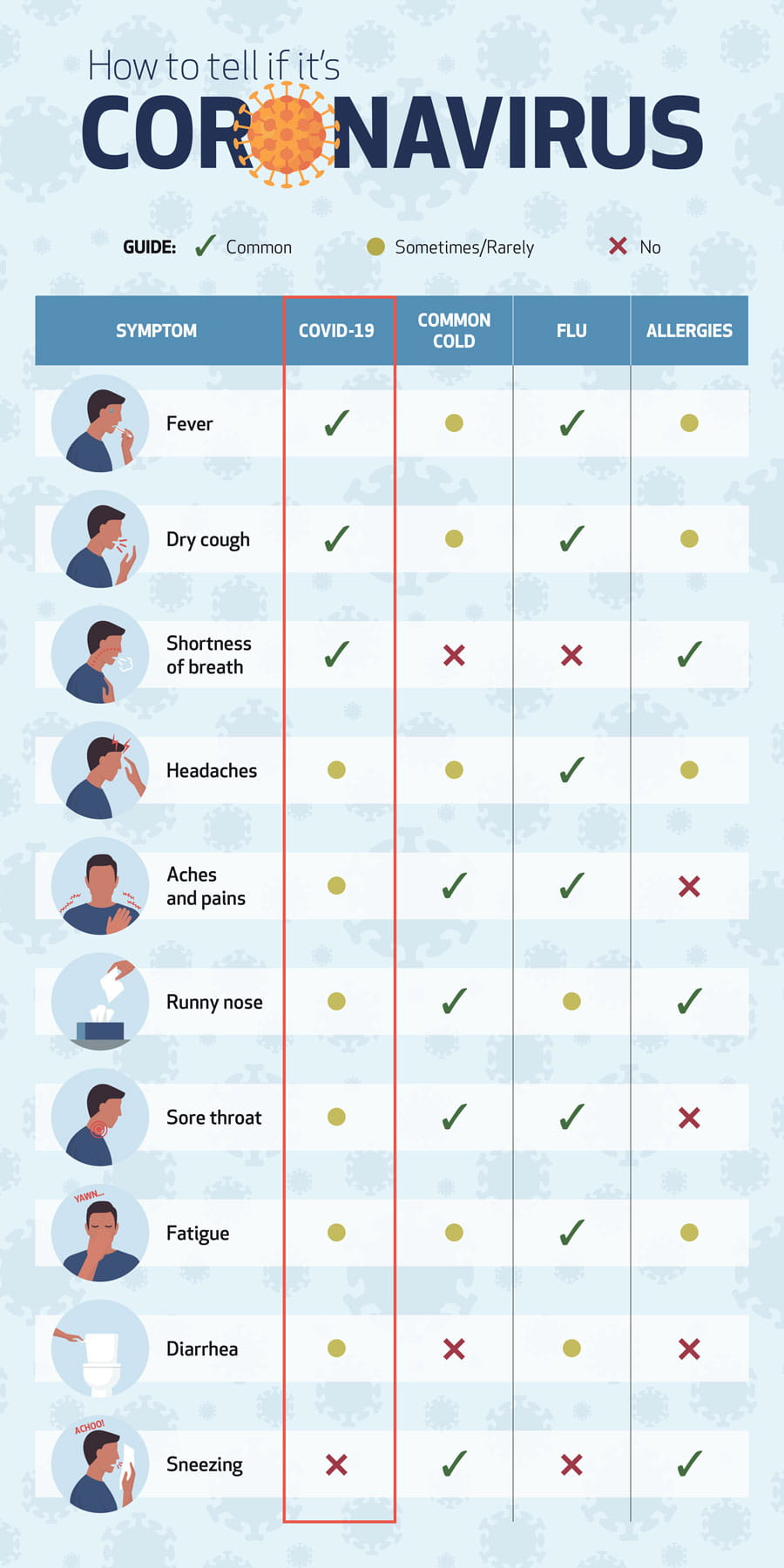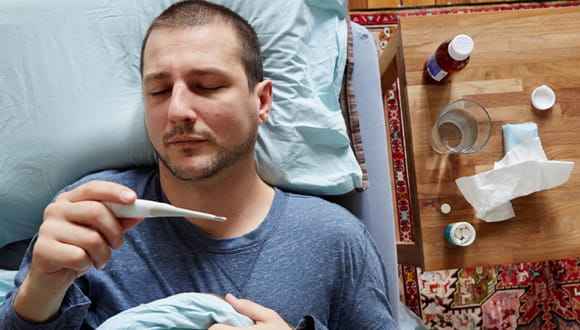What Should You Do If You Think You Have COVID-19?
April 13, 2020 - Katie McCallumEven the slightest cough may send you on high alert. Could it be COVID-19?
If your symptoms start ramping up, your questions do, too. Is it allergies? Is it a cold? Is it the flu? What do I even do if I think it is COVID-19?
Here's how to tell if you may have COVID-19, as well as what to do next.
Step 1: Know which symptoms separate COVID-19 from a cold, flu or allergies
With many overlapping symptoms, there's some initial investigative work you can do to help determine if your symptoms may be due to a cold, the flu, allergies or COVID-19.
Take note of your specific symptoms, and use the chart below to determine if your symptoms are frequently caused by COVID-19 or by some other common respiratory condition.

If your symptoms are more consistent with that of a cold or flu, use over-the-counter medications or home remedies to treat your symptoms. You'll also want to stay home and avoid close contact with others to prevent spreading your illness. Lastly, since many symptoms of these upper respiratory infections overlap, there's also no harm in taking an at-home COVID-19 test if you have access to one.
If you think it's allergies, start by choosing the over-the-counter allergy medication that's best for you. And, again, don't be afraid to take an at-home COVID-19 test if you have one. Better safe than sorry, right?
If you're experiencing symptoms commonly seen in COVID-19, move to step two below.
Step 2: Get tested
If you think you might have COVID-19, it's important to get tested. (Related: 4 Questions You May Have About COVID-19 Testing, Answered)
If you do test positive for COVID-19, here's what to do next.
If you have symptoms and get a negative at-home test result, it's best to confirm this via a PCR test, as indicated on the test's label.
Not sure whether you need to be tested or how to go about doing so, you can be screened virtually by one of our board-certified care providers through Houston Methodist Virtual Urgent. Our providers are available 24/7 to help determine if you need testing, as well as advise you where to go.
Step 3: See your doctor for follow-up care if needed
Many people experience mild symptoms that can be treated at home through pain relievers, cough medications, rest and hydration. If you have further questions about your symptoms or need follow-up care, we recommend scheduling a visit with your doctor.
Need care now?
Houston Methodist Virtual Urgent Care offers on-demand video visits from wherever you are, no appointment needed. Our board-certified providers are available 24/7 to address many common health issues.








